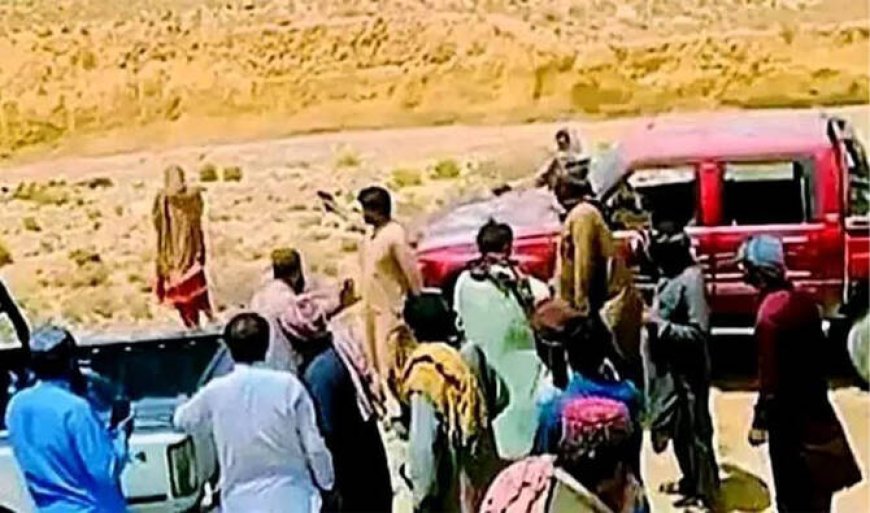Balochistan: Women Shot Dead Over Marriage by Choice
A horrific case emerged recently from a tribal area in Balochistan, where a young Baloch woman and her husband were executed by armed men—reportedly under orders from a tribal jirga—after marrying of their own choice without familial consent.

A horrific case emerged recently from a tribal area in Balochistan, where a young Baloch woman and her husband were executed by armed men—reportedly under orders from a tribal jirga—after marrying of their own choice without familial consent. The chilling incident was captured on video and widely shared, prompting widespread outrage nationwide. Authorities have arrested at least one suspect and registered a terrorism case, drawing condemnation from religious leaders and human rights activists alike.
-
Victims: A Young Baloch woman (identified as Shetal) and her husband
-
Method: Shot dead at close range in a tribal desert area
-
Viral video: Clip shows the woman holding a Quran, reciting before being shot
-
Legal action: One suspect arrested; terrorism charges registered by the state
-
Location: Remote mountainous region of Balochistan (around Eid‑ul‑Adha)
-
Authority involved: Killing reportedly ordered by local tribal jirga
-
Public response: National condemnation from the PPP, Pakistan Ulema Council, and activists
-
Human rights context: Latest in ongoing pattern of “honor killings” in Pakistan
A disturbing video shared widely online depicts a young woman walking while clutching a copy of the Quran. She declares:
"Walk seven steps with me… after that you can shoot me."
Following her statement, both she and her husband are shot dead in broad daylight. The video is believed to have been recorded in a remote mountainous area of Balochistan during the Eid al-Adha period.
The video triggered immediate outrage. In response, Balochistan Chief Minister Mir Sarfraz Bugti confirmed a suspect arrest and affirmed that authorities — not the families — would file charges. The killing has been classified as an act of gender-based terrorism.
-
PPP Chairman Bilawal Bhutto Zardari denounced the attackers as “beasts” and demanded swift justice, calling this “gender terrorism.”
-
Pakistan Ulema Council labelled the killing “un-Islamic, anti-Sharia and terrorism”, urging that suspects be tried under terrorism legislation and in the location of the crime.
-
Senator Sherry Rehman called the act a violation of constitutional rights and emphasized that tribal customs must not overrule legal justice.
Violations of personal freedom and gender-based violence continue under variations of customary law, often unchallenged. This case highlights the urgent need for reform in justice enforcement and legislative protection.
The viral video shattered complacency, causing immediate public outcry. Civil society and media called for systemic change.
This case represents a rare instance of state-led terrorism, rather than a private complaint. That raises legal expectations for prosecution outside family claims, setting a potential precedent for future honor-killing cases.
Human rights activists and women's rights groups emphasized the need to challenge the deep-rooted patriarchal norms that enable such crimes. They are demanding:
-
Enforcement of constitutional rights to marry freely
-
Prosecution of local jirga actors invoking illegal punishments
-
Legal reform ensuring honor killings are treated as state crimes, not family matters
Senator Rehman described the incident as “a despicable act” and demanded an end to barbaric traditions.
Activist Sammi Deen Baloch called on tribal elders to honor women’s decisions, stating that killing in the name of honor is “the worst humiliation of humanity.”
This tragic incident shows the persistence of violent tradition over individual rights in parts of Pakistan, particularly rural Balochistan. The viral video and ensuing public outrage have opened a window for potential justice and reform—but only if authorities follow through with arrests, prosecution under terrorism and human rights laws, and dismantling the cultural immunity that protects perpetrators.

 Ateeq Ur Rehman
Ateeq Ur Rehman